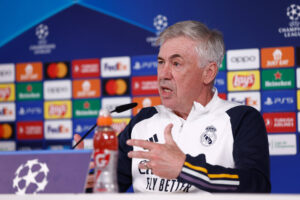Since joining Arsenal in September 2013, Mesut Özil has staked his claim as one of, if not the very best, players of the Emirates era. Despite having been met with criticism from some quarters in the media on work rate and big-match influence, history will likely side with Özil when the dust settles.
Mesut Özil has set records, has created magical moments against many of Arsenal’s fiercest rivals and, most importantly of all, has done it all in an inimitable style. Whilst the conclusion of his Arsenal career will seemingly be a less happy affair, it should not be undersold quite how good a player Arsenal have had on their hands over the last eight years.
Mesut Özil: A Legacy That Will Grow Over Time
Record Setter – A Tough Feat to Match
When the dust settles, the record book often makes clear what sort of legacy a player has left behind. In this respect, Mesut Özil has most certainly made his mark.
Two records are most notable – the most chances created over a Premier League season and the most chances created in a single Premier League match.
In respect to the former, Özil generated a whopping 146 chances over the 2015/16 season. For some perspective, Kevin De Bruyne in his assist record-equalling 2019/20 season created 136 chances, ten fewer.
The latter came in a 2016/17 encounter against Sunderland where Özil created 12 chances over the 90 minutes.
It would not be unfair or unrealistic to suggest that these records may last some time. If De Bruyne in a season as prolific as 2019/20 could not break either, it would suggest that it would take something truly remarkable to push the record higher.
Özil’s numbers will likely stand the test of time, he has set Premier League records which will not easily be broken.
Magic Moments – Mesut Özil has Left a Wide Array of Unforgettable Performances
A criticism often angled at Özil is that too often his best moments are reserved for less than elite opposition. Such a claim is repeated with such confidence that it would almost be easy to believe it, this would be a mistake.
Over his tenure at Arsenal, Özil registered a goal or assist against Chelsea, Tottenham Hotspur, Manchester United, Manchester City, Liverpool.
This is not to say that Özil’s record sums up to a meagre one contribution against each of these clubs over eight years. Özil won several Man of the Match awards across the Arsene Wenger years against these clubs too and even did against Manchester United last season. The irony is that often his finest performances were the ones without a goal or assists, such as his features at The Emirates against Chelsea or Manchester United in the 2017/18 season.
Furthermore, it should not be downplayed the context of many of these performances. Özil sent The Emirates into carnage when he scored the third against Liverpool in the 2017/18 season, sparked title dreams with his goal against Manchester United in the 2015/16 season, and put the final nail in the coffin with his goal against Chelsea in 2016/17.
On this topic, it cannot go unmentioned the calibre of some of Özil’s goals and assists. His mazy run away to Ludogorets will go down as one of the most technically impressive goals of modern times, and his perfectly cushioned volley against Newcastle United should be no less revered.
Özil left countless moments of joy on the pitch, the importance of this should not be understated.
A Unique Artist – Only One Mesut Özil
In a time where football is often criticised for becoming systematic, Özil undeniably did things his way.
This could be seen in his frequent use of dummies (most famously in Arsenal’s team goal against Leicester City in 2018/19), his perfect touch, and his subtle shoulder feints. But it would be remiss not the mention the fact that he pioneered his own way of striking the ball.
The Özil bounce shot is a novel way of deceiving a goalkeeper, and it was used to good effect. It is not often that a player finds a new way to shoot, but this is exactly what happened.
The way Özil played for Arsenal and his football, in general, can simply be called unique. This sentiment was echoed by José Mourinho when he famously said that: “there existed no copy of Mesut Özil, not even a bad one.”
A Frequent Target
It would be tone-deaf to write a piece on Özil and not acknowledge the heavy criticism that he has come under.
One such criticism is to do with Özil not putting in the hard yards and being a defensive liability. This criticism is often backed up with the idea that Özil’s body language is too unbothered, and that he should more visibly put himself about.
The problem with this criticism is that it never finds a basis, either empirically or anecdotally. Time and time again, running data would put Özil near the top of the back, both for distance covered and for sprints.
Likewise, Özil has been praised for his work by his peers, most notably by Arsenal performance coach Darren Burgess.
Fundamentally, this criticism is flawed. It is never actually backed up.
The other main point of attack seems to be about consistency. Often it is repeated that Özil can be good, but needs to do it more. Such criticism has been brought out less since Unai Emery arrived at Arsenal, owing to Özil’s heavily reduced playing time. The irony is that Özil’s numbers under Arsene Wenger define consistency.
For example, Özil’s record of goals/assists per game stood at 0.54 under Wenger. To compare, this betters that of Cesc Fabregas, Frank Lampard, Robert Pires, Aaron Ramsey, David Silva, Eden Hazard, and several more.
This is a staggering level of consistency, suggesting that all criticisms to make, this is a very strange one to put emphasis on.
All in all, Mesut Özil has a legacy that will only be seen as better over time. His arrival took Arsenal from a club in a lull, to a club who would compete for silverware. He created memories that will live forever, and when time passes and the glare of an ugly conclusion softens, what remains will be the legacy of a modern Arsenal great.
Main Photo






